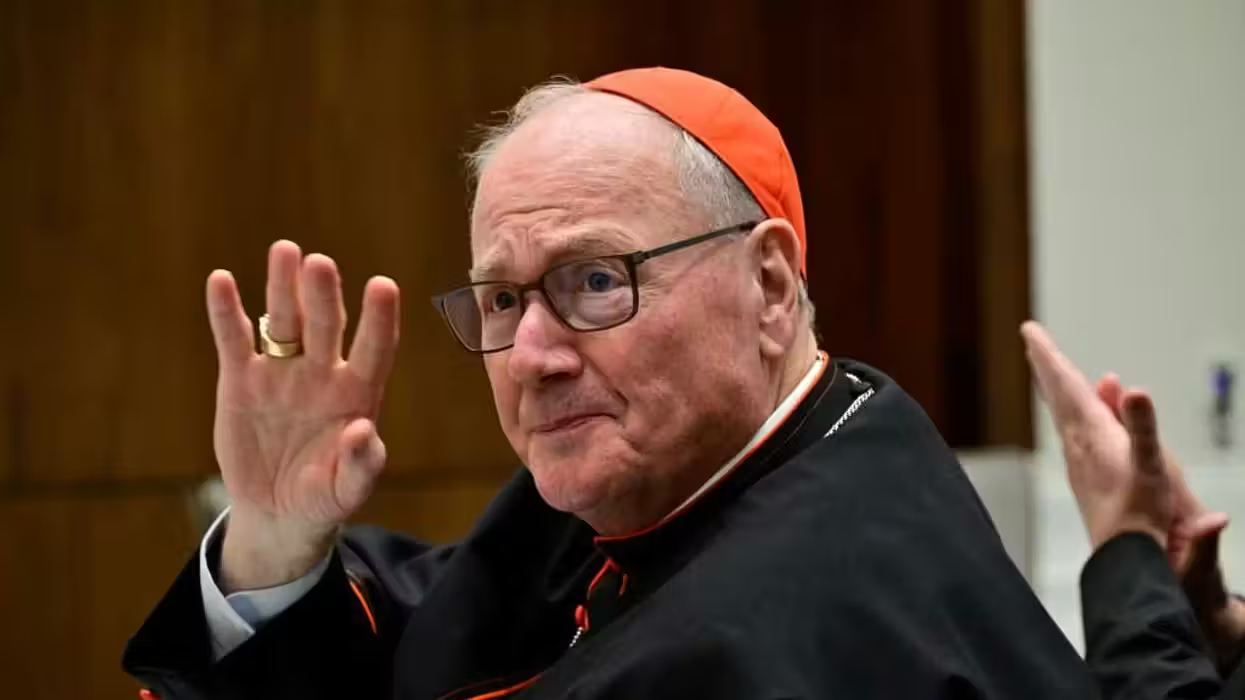
© 2025 Blaze Media LLC. All rights reserved.
Do You Know the Roots of the Islamic State's Ideology? Buck Sexton Breaks It Down
November 05, 2014
"Is there a term for their overall ideology? A way to describe their version, their interpretation of Islam?"
The Islamic State has dominated the headlines in recent months, surprising many when it gained control of large swaths of territory in Iraq and Syria.
TheBlaze's national security adviser Buck Sexton on Wednesday explained the roots of the Islamic State's ideology, saying "terrorists" isn't the only adjective that describes the organization.
"Sure, they're terrorists. We call them that and they're waging a jihad, a holy war," Sexton began. "But is there a term for their overall ideology? A way to describe their version, their interpretation of Islam?"
Sexton said there is, and that term is "Salafism." The word describes the first generations of leadership in the Islamic community, also known as the "rashidun" or "rightly guided caliphs."
 Image credit: TheBlaze TV
Image credit: TheBlaze TV
"The rashidun are roughly equivalent to the founding fathers of Islam after the prophet Muhammad died," Sexton said. "In the modern context, the term Salafi refers to a puritanical version of Islam, one that tries to make its adherents live life as closely as possible to the early Islamic leaders. Salafis are fundamentalists. They are strict textualists. The believe the Koran must be read and implemented literally, just like the forefathers of Islam did."
"That, of course, also means Salafis advocate for Shariah law," Sexton added.
Sexton said some use the term Wahhabism and Salafism interchangeably, and while there are similarities, Wahhabism has a very specific origin.
"You see, Wahhabism refers to a specific 18th century preacher who proselytized on the Arabian Peninsula," Sexton said. "That preacher, Muhammad ibn Abd al-Wahhab, made an alliance with the desert clan known as the Sauds. And of course, they would eventually become the modern rulers of Saudi Arabia. And so the strict version of Islam endorsed today in Saudi Arabia is called by some 'Wahhabism.'
Wahhabism can be a form of Salafism, Sexton said, though there are also strains of Salafism that trace back to Egypt and Muslim Brotherhood figures like Sayyid Qutb and Hassan al-Banna
"At this point in our discussion, many scholars and apologists for radical Islam would start getting upset," Sexton remarked. "They would say, 'Hey! Salafis aren't necessarily violent. Some even refuse to engage in the political process to further Islam.' OK, true. But all of the main jihadist terrorist groups around the Muslim world could be accurately described as Salafist."
"Al Qaeda? Salafist. ISIS? Salafist. Boko Haram, the Taliban, Al-Shabaab? Yup, all of them are Salafist groups," Sexton said. "All of those groups believe that a true interpretation of the Koran means waging jihad against the kafir, their term for infidels or nonbelievers, instituting strict Shariah, and rejecting all forms of outside influence -- generally speaking, western influence."
"As for the doctrinal debate -- who is the true Salafist, who is the most pure Muslim?" Sexton concluded. "Nobody really knows. But a lot of people are dying as the Muslim world figures it out."
Want to leave a tip?
We answer to you. Help keep our content free of advertisers and big tech censorship by leaving a tip today.
Want to join the conversation?
Already a subscriber?
more stories
Sign up for the Blaze newsletter
By signing up, you agree to our Privacy Policy and Terms of Use, and agree to receive content that may sometimes include advertisements. You may opt out at any time.
Related Content
© 2025 Blaze Media LLC. All rights reserved.
Get the stories that matter most delivered directly to your inbox.
By signing up, you agree to our Privacy Policy and Terms of Use, and agree to receive content that may sometimes include advertisements. You may opt out at any time.






